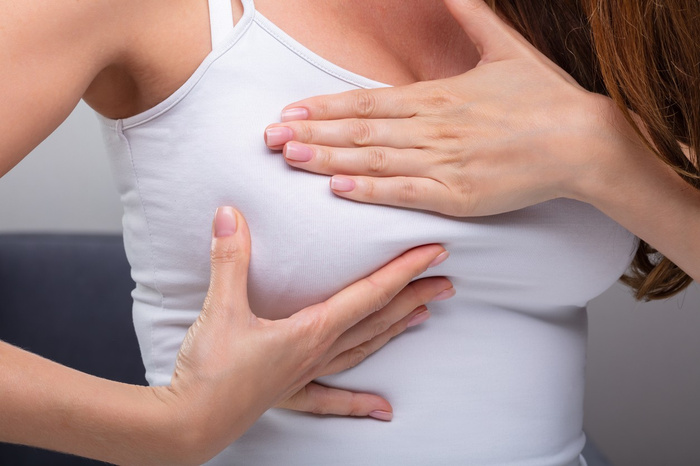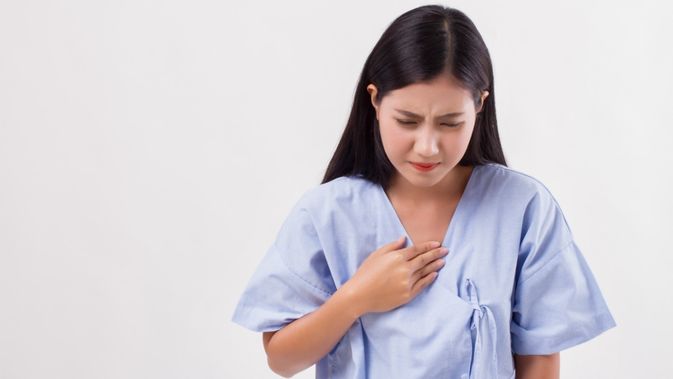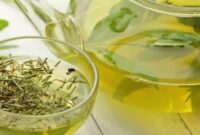Many things cause swollen breast tissue, and one of the most common causes is hormonal fluctuations. Still, swollen breasts may also be caused by more serious medical conditions.
Causes of swollen breast tissue

Several things can cause swollen breast tissue, including:
Puberty
Girls who are growing up may experience swollen breast tissue as puberty begins. It is the first sign of physical changes in breast growth. At puberty, a teenager’s body will produce more female hormones.
Usually, teenage girls’ breasts will begin to grow between 7 and 13 years. However, some girls may experience growth earlier or later than that age.
During breast development, the tissue will form behind the breast and cause the flat area around the nipple to enlarge, giving the impression of swollen or enlarged breast tissue.
Before menstruation
Swollen breast tissue can also occur before your menstrual period or PMS. Swelling that occurs can also be accompanied by tenderness and feels heavy. Usually, this condition will appear for 1-2 weeks before menstruation.
Before menstruation, swollen breast tissue is affected by an increase in the hormone estrogen, and is expected, so there is no need to worry. The breast ducts and mammary glands can enlarge and cause the breasts to feel swollen, but this will gradually improve after the menstrual period.
Mastitis
Swollen breast tissue can also occur in breastfeeding women with an infection due to a blockage in the milk ducts or mastitis. This condition is usually caused by breast milk trapped or accumulating in the breast.

Mastitis is characterized by swollen and enlarged breasts, redness, warmth to the touch, and tenderness. It may feel fever, chills, and possibly muscle aches.
Untreated mastitis can lead to complications, such as the appearance of a collection of pus in the blocked milk duct.
To treat swollen breast tissue from mastitis, breastfeeding mothers should consult a doctor for antibiotic treatment and medical advice to relieve their symptoms.
Lymphedema
Swollen breast tissue can also be caused by lymphedema. It is a condition where lymphatic fluid builds up in tissues with a blockage in the lymphatic drainage system, such as axillary or axillary lymph nodes.
Drugs

Taking oral contraceptives containing estrogen while undergoing fertility treatment or hormone replacement therapy can also cause swollen breast tissue. In addition, several other drugs, such as thyroid, corticosteroids, and some psychiatric medications, can also indirectly cause hormonal changes, which cause swollen breasts.
Non-cancerous breast mass
Mass growth can also be a cause of swollen breasts. Immediately consult a doctor if you find a lump in the breast that was not there before.
More than 80% of masses or lumps felt in the breast are not due to cancer. The most common breast masses are cysts or benign tumors such as fibroadenomas.
Inflammatory breast cancer
Although relatively rare, swollen breast tissue can also be a symptom of inflammatory breast cancer. It is a very aggressive type of breast cancer and occurs when cancer cells block lymph vessels in the skin of the breast. It can cause the breasts to become swollen, red, and inflamed.
Treatment for swollen breasts

How to treat swollen breast tissue will depend on the cause of the swelling. Here are some possible treatments for swollen breasts:
- If an infection, such as mastitis, causes the condition, your doctor may prescribe antibiotics to treat it.
- If the swelling is caused by hormonal changes related to the menstrual cycle, the doctor may prescribe birth control pills to relieve breast engorgement and other PMS symptoms in some women.
- If breast engorgement is caused by cancer, the doctor may suggest chemotherapy, radiation therapy, surgery, or a combination. This treatment plan depends on the type, location, and cancer stage.
In addition to doctor’s treatment, you can also follow some of the following tips to reduce discomfort related to breast engorgement conditions:
- Wear a supportive bra or make sure the size of your bra fits and feels comfortable to hold your breasts so they don’t move around a lot.
- Apply a hot compress or ice pack covered with a cloth to the swollen breast area for up to 10 minutes.
- Use over-the-counter pain relievers, such as ibuprofen, and follow the directions.
That’s information related to the causes of swollen breast tissue. Consult a doctor immediately if the swelling does not subside, symptoms worsen, are accompanied by fever, or make you feel worried.



